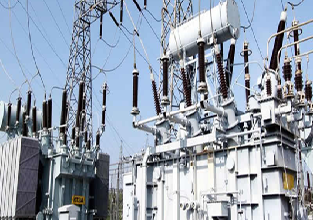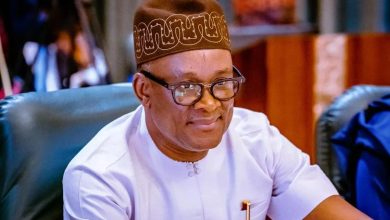Nigeria’s Tech Future Hinges on Stable Power Supply, Says NACC Acting DG Wofai Samuel
NACC’s Acting DG Wofai Samuel says Nigeria’s tech growth depends heavily on solving persistent electricity challenges limiting digital innovation.
She urged strategic partnerships, policy reforms, and global exposure to boost Africa’s tech potential and drive long-term economic transformation.
The Acting Director-General of the Nigerian-American Chamber of Commerce (NACC), Ms. Wofai Samuel, has emphasized that Nigeria’s dream of a thriving technology sector will remain elusive unless the country resolves its long-standing electricity challenges.
In an interview with the News Agency of Nigeria (NAN) on Monday, Samuel pointed out that technology and power are deeply intertwined, stressing that reliable electricity is the foundation upon which innovation and digital growth are built.
“Without power, how do we even drive technology?” Samuel asked. “Power and technology are closely linked; neither can function optimally without the other.”
Tech as a tool for diversification
Amid global trade shifts and rising tariffs from the United States on multiple countries, Samuel noted that African economies must embrace diversification. She highlighted technology as one of West Africa’s most promising sectors for long-term economic transformation, especially in the face of uncertainties surrounding trade frameworks like the African Growth and Opportunities Act (AGOA).
“The tech industry presents one of the easiest routes for diversification. It offers vast potential that West Africa, especially Nigeria, can tap into,” she said.
Samuel added that developed nations have driven remarkable economic advances by leveraging internet access and data to power innovation. She urged African governments to study and emulate their strategies, particularly in forming global collaborations that boost technological infrastructure and skill development.
Learning from global partnerships
Samuel cited a recent $600 billion investment by Saudi Arabia’s Crown Prince into the U.S. tech industry as a clear example of how nations are strategically building their digital capacities.
“If the United States, a global technology leader, can collaborate with other countries to strengthen its tech sector, what excuse do African countries have?” she asked.
She also highlighted the dominance of U.S. tech giants like Meta, Google, Tesla, and X, and transformative technologies such as ChatGPT and Meta AI, saying Africa must engage with these advancements rather than remain passive observers.
Banking sector as a model for tech adoption
Drawing from Nigeria’s financial services landscape, Samuel described the fintech boom as a successful case of technology driving growth. She pointed to World Bank forecasts predicting the banking and fintech sector to be among Nigeria’s fastest-growing industries in 2025. Innovations in mobile and online banking, she noted, are reshaping how Nigerians access and manage financial services.
Policy support and global exposure needed
To maintain momentum, Samuel called on African tech startups to participate in both local and international tech summits, which she described as critical platforms for forming strategic alliances and increasing visibility.
She also urged government stakeholders, especially ministers of communications and state commissioners for science and technology, to be more proactive in crafting policies that enable innovation and sustainable digital development.
Tech’s growing economic role
Nigeria’s Information and Communication Technology (ICT) sector already plays a key role in the economy, contributing 17.68% to real GDP in 2024, up from 17.34% in 2023. According to the National Bureau of Statistics, telecom services alone made up 14.4% of GDP in Q4 2024, ranking it as the third-largest contributor after agriculture and trade.
Earlier in 2025, Nigeria’s Minister of Communications, Innovation, and Digital Economy, Dr. Bosun Tijani, announced projections that the digital economy could account for 21% of Nigeria’s GDP, a target Samuel says can only be achieved with consistent power supply and forward-thinking policies.



